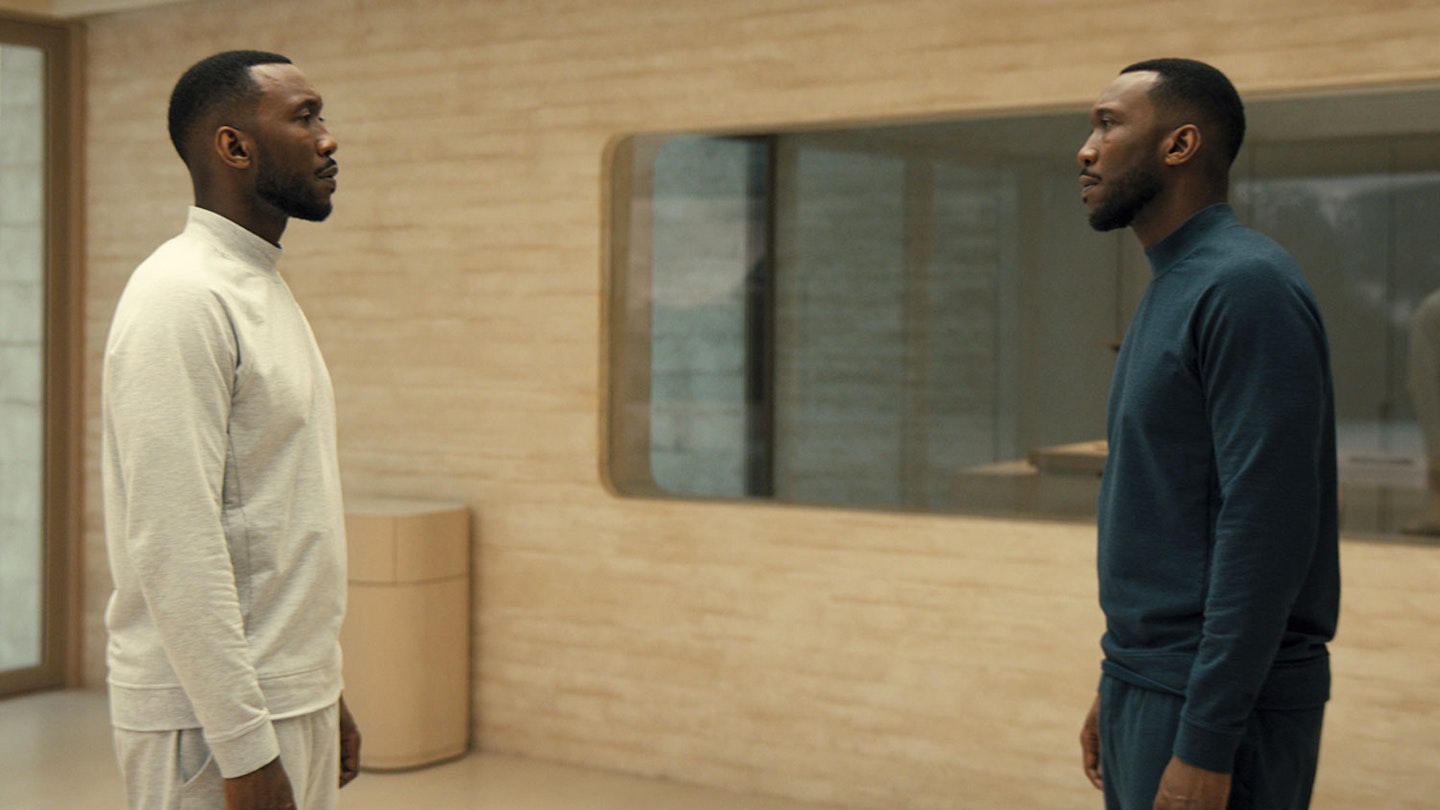Contemplating big questions of mortality, identity and loyalty, Irish director Benjamin Cleary’s feature debut has sensitivity and style to match its sweeping narrative ambition. Featuring a superb dual performance by Mahershala Ali, Swan Song effectively balances science-fiction sentiments and distinctly human sentimentality to deliver an engaging study of what it truly means to be flesh and blood in a near-future world where those things can be synthesised to seamless perfection.
Or so hopes graphic designer Cameron (Ali), who is hiding his terminal-illness diagnosis from his wife Poppy (Naomie Harris) and young son. Desperate to save them from the heartache of his death, Cameron visits the isolated compound of pioneering cloning scientist Dr Scott (Glenn Close), who creates a perfect, healthy version of Cameron (whom they name Jack, also played by Ali). Cameron and Jack must spend some time together, to make sure that Cameron’s personality has successfully copied across before Jack leaves the compound, has his memory wiped and lives the rest of his life believing himself to be the original Cameron — who will die at the facility.

Aside from a few intense moments of high emotion, there’s no suggestion that this procedure will be anything other than successful; Swan Song is not focused on psychological thrills but in mining the rich dramatic seams of self-reflection and impossible choices. It’s in the moments where Cameron and Jack are together on screen, where Cameron must literally face up to himself, that the film has most resonance. Why does he think Jack is not good enough for his family, that he is being usurped, when Jack is a carbon copy? What does that mean for his own sense of self? The film has no easy answers, but revels in these probing questions.
Production designer Annie Beauchamp deserves the highest of praise, creating a richly textured and grounded futuristic world.
Other elements are not quite as successful. The idea that Cameron actually has the right to keep his wife in the dark about his fate is a troubling grey area that the film only briefly touches upon; convenient flashbacks of her struggling with the death of other family members seem to be the only justification Cameron needs to take both of their lives into his hands. It’s also a shame to see the always-fantastic Harris underused in a role which exists only to provide the motivation for a man to undertake a great psychological journey. (Co-star Awkwafina, as a dying woman who has had herself cloned, also has woefully little screen time.)
But this is unashamedly Cameron’s story, and its undeniably well told. Production designer Annie Beauchamp deserves the highest of praise, creating a richly textured and grounded futuristic world which draws on the most plausible of sci-fi ideas — self-driving cars and in-eye cameras among them (Cameron’s habit of turning sweet-wrappers into origami animals is a neat nod to the thematically similar Blade Runner). Indeed, one of the film’s major strengths is its grounded, well-worn aesthetic, which serves, rather than overwhelms, the human drama at its heart.


